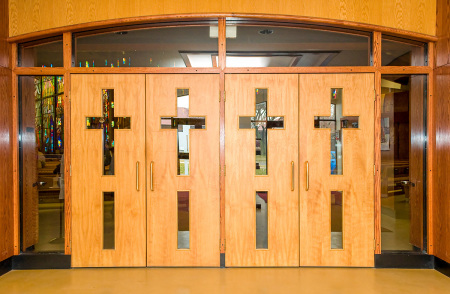Evangelicals, regular churchgoers more likely to be pro-life: Lifeway

Evangelicals and other Americans who attend church regularly are more likely to oppose abortion than the religiously unaffiliated and those who go to church less often, according to a new report by Lifeway Research.
Lifeway Research released a report last week on the abortion issue on behalf of the Land Center for Cultural Engagement at Southwestern Baptist Theological Seminary.
The survey found that while 64% of those who held “Evangelical beliefs” identified as pro-life, 53% of non-Evangelicals and 70% of “non-religious” respondents identified as pro-choice.
Furthermore, Christians who attend church weekly were over twice as likely to be pro-life, with 53% saying they were pro-life versus 19% who identified as pro-choice.
By contrast, respondents who attend church two to four times a month were mostly pro-choice, with 36% identifying as pro-choice and 28% as pro-life, while 46% of those who attend church less frequently identified as pro-choice, versus 30% who identified as pro-life.
When asked how their views developed on abortion, 58% of those labeled “generally pro-life” said their opinions were formed by “My personal religious faith,” while only 9% of those labeled “generally pro-abortion rights” said the same.
For their report, Lifeway conducted an online survey of 1,155 Americans from April 20 to May 3, which had a margin of error of plus or minus 2.7% with a 95% confidence level.
Southwestern Baptist Theological Seminary President Adam W. Greenway said in a statement published Tuesday that he believes the report shows “Evangelical beliefs and practices, especially church attendance, translate into pro-life views.”
“This underscores the truth that the ultimate solution to this moral problem, like all moral problems, is spiritual transformation of the Gospel of Jesus Christ among individuals that will eventually translate into societal changes,” stated Greenway.
In early May, Pew Research Center released a report in which white Evangelicals were the surveyed group most likely to believe that abortion should be illegal in most cases (53%) and the most likely to oppose abortion in all cases (21%).
By contrast, 32% of Catholics, 31% of white non-Evangelical Protestants, 21% of black Protestants, and 13% of religious unaffiliated agreed that it should be banned in most cases.
Pew also found that, regardless of religious affiliation, “large numbers of Americans favor certain restrictions on access to abortions.”
“For example, seven-in-10 say doctors should be required to notify a parent or legal guardian of minors seeking abortions,” stated Pew.
“And most of those who say abortion should be legal in some cases and illegal in others say that how long a woman has been pregnant should be a factor in determining whether abortion is legal or illegal (56% among all U.S. adults).”
Lifeway’s and Pew’s reports come as the nation awaits a decision from the United States Supreme Court on the case of Dobbs v. Jackson, which will determine if Mississippi can ban most abortions after 15 weeks into a pregnancy.
If the Supreme Court upholds the state law, it will effectively overturn the landmark 1973 decision of Roe v. Wade, which established abortion prohibited states from banning abortion before fetal viability.
In early May, Politico published a leaked draft majority opinion that had Roe being overturned in a 5-4 decision authored by Justice Samuel Alito, allowing states to decide if they want to ban abortion.
Although both Politico and the Supreme Court noted that the draft was not final and did not necessarily mean that Roe would be overturned, the news nevertheless sparked several protests and numerous incidents of vandalism against churches and pregnancy resource centers.





















